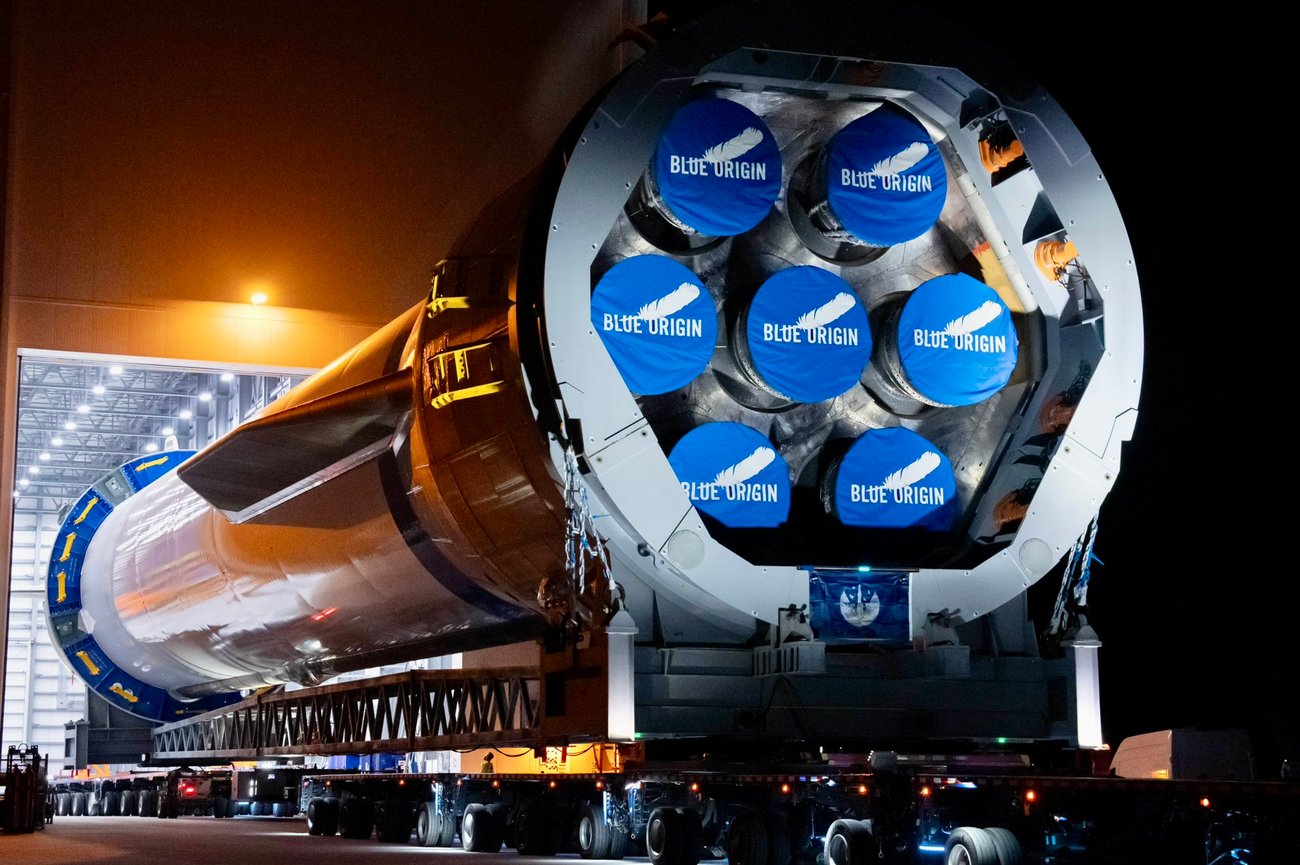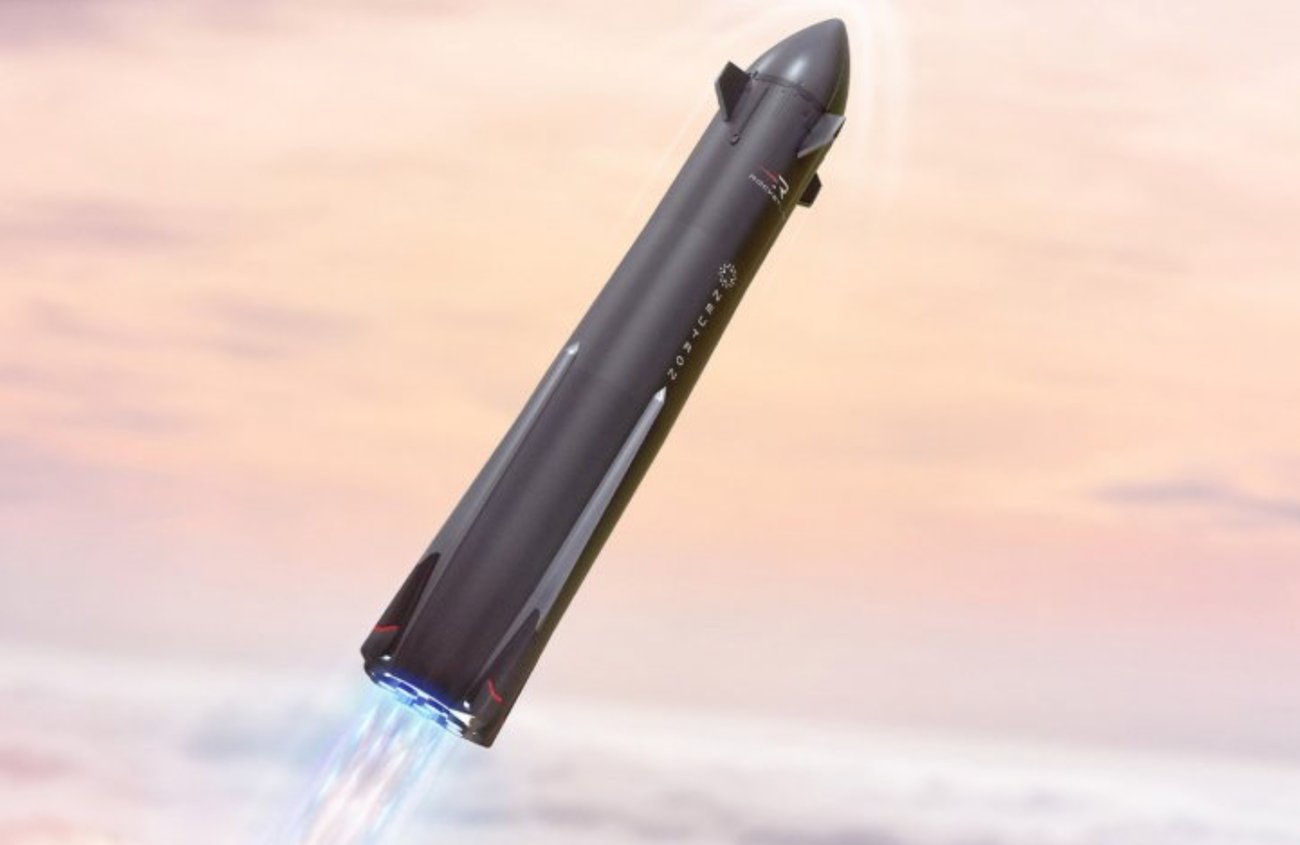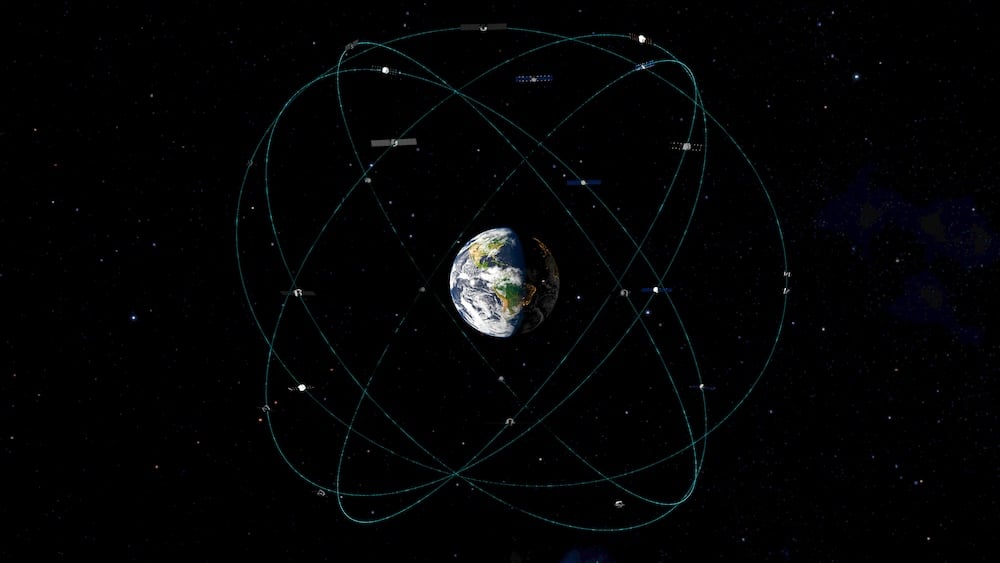National security insights for space professionals
| National security insights for space professionals. Delivered Tuesdays. | | View in Browser | | | | | Happy Election Day!
Welcome to this week's edition of SpaceNews Military, your concise source for the latest developments at the intersection of space and national security. In this issue, we cover:
- Space Rapid Capabilities Office launches small biz accelerator - U.S.-China space relations at a crossroads - Astranis and Xona Space team up for GPS backup program
If this newsletter was forwarded to you, sign up for free here | | | | | Countdown to New Glenn
Blue Origin last week transported the first stage of the New Glenn rocket to Cape Canaveral Space Force Station Launch Complex 36, where it will undergo further testing and preparations for its upcoming first launch.
The massive 188-foot stage — equipped with seven BE-4 engines — was moved on an Oshkosh M1070, a repurposed U.S. Army tank transporter.
With New Glenn, Blue Origin is aiming to compete against SpaceX and United Launch Alliance in the commercial and national security launch markets.
|  | | | | Space Rapid Capabilities Office announces "Prime Fusion" accelerator for small businesses
The U.S. Space Force's Space Rapid Capabilities Office (Space RCO) is sponsoring an accelerator named "Prime Fusion" to help small businesses navigate the defense contracting landscape within the space sector.
The accelerator is focused on space domain awareness and seeks to attract companies that already have technologically mature offerings — especially satellite-hosted sensors and software to detect on-orbit anomalies and potential threats. -
Selected participants will have the opportunity to connect with large defense contractors, potentially opening doors to collaboration and commercialization of their solutions. -
The Space RCO, headquartered at Kirtland Air Force Base in New Mexico, is organizing the accelerator in partnership with FedTech and Leidos. Interested businesses have until Dec. 4 to apply. -
"The Prime Fusion Accelerator demonstrates our ongoing commitment to increasing collaboration with industry, particularly non-traditional companies," said Matt Fetrow, spokesperson for the Space RCO.
| | | | | | | U.S.-China space relations at a crossroads
As China ascends as the world's second-largest space power, the next U.S. administration faces a critical decision: engage with China on space or risk heightened tensions in an already competitive domain.
A new report by the Center for Strategic and International Studies (CSIS) emphasizes the urgency of U.S.-China space dialogue, especially as both nations expand their satellite fleets and conduct ambitious exploration missions that bring them ever closer in orbit—and potentially into conflict.
Key takeaways: -
China has equipped its military with hundreds of space assets, including communications, intelligence, missile warning, and navigation satellites. It has also developed anti-satellite weapons capable of targeting U.S. assets. -
China has solidified its status in human spaceflight with its space station and is pursuing a lunar landing program that may place Chinese astronauts on the Moon before NASA's next mission. -
With aspirations to rival the U.S. in commercial space, China is deploying communication and remote sensing satellites to capture market share. -
A mechanism to prevent misunderstandings during close-proximity satellite operations or potential collisions is critical to avoid unintended escalation. -
CSIS points to Cold War-era U.S.-Soviet space cooperation as a model for maintaining communication during tense periods.
| | | |  | |
Rocket Lab confirmed it will submit a proposal to compete for Pentagon contracts with its new medium-lift rocket Neutron.
"We're excited to bid this time round for NSSL Lane 1, and we think Neutron is a really good vehicle for it," Rocket Lab's founder and CEO Peter Beck told SpaceNews.
The NSSL Phase 3 Lane 1 program is an Indefinite Delivery, Indefinite Quantity (IDIQ) contract, enabling the Space Force to on-ramp providers on a yearly basis, and award individual task orders as needed.
The Space Force requires the next round of Lane 1 bidders to be ready for a first launch by December 2025, a timeline Beck says Neutron can meet.
| | | | |
Satellite manufacturer Astranis is teaming up with navigation startup Xona Space Systems to compete for a U.S. Space Force contract aimed at developing a backup to the military's GPS system.
Astranis secured an $8 million contract for the initial design phase of the Resilient Global Positioning System (R-GPS) program, which seeks to deploy smaller, more cost-effective satellites to supplement the existing GPS constellation.
The U.S. Space Force selected four companies in September to develop competing designs, including Axient, L3 Harris, and Sierra Space alongside Astranis. One or two contractors will be selected to build an initial fleet of eight satellites, scheduled for launch in 2028.
|  | | |  | | | | The National Reconnaissance Office selected Cognitive Space, Impulse Space and Starfish Space to participate in its technology program that seeks innovations in space logistics and in-space mobility.
"This program helps NRO advance emerging technologies across launch, on-orbit support, and command and control," said Col. Eric Zarybnisky, director of the NRO's office of space launch. | | | | | | | What's New With SpaceNews? |  | | Join us November 13 at 11:00 AM EST for a dynamic webinar that brings together key players from across the space industry to explore the growing need for a more collaborative approach to designing the next generation of satellite systems. | | | | | | |

No comments:
Post a Comment